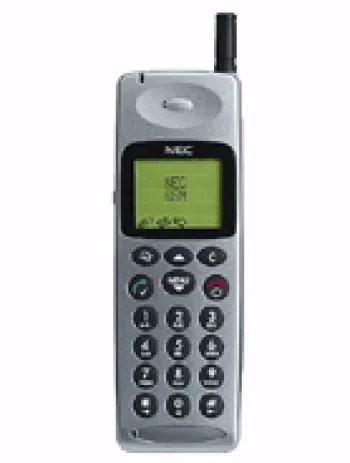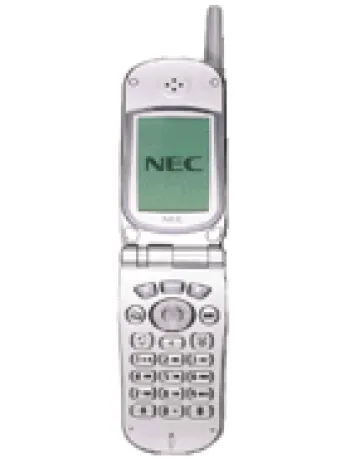
Introduction to NEC N22i
The NEC N22i was a feature phone launched by NEC in 2003. As part of the early 2000s mobile technology wave, it presented a blend of compact design and basic functionality. It marked a time when mobile phones were primarily used for calls and simple text communications. This article delves into its specifications, design, and overall impact during its time of release.
Design and Build
The NEC N22i boasted a compact and sturdy build, essential for mobile phones at that time. It measured 101 x 48 x 27 mm and weighed 110 g, which was considered quite portable. The form factor suited users who preferred a phone that could easily fit into pockets and bags. Its silver color offered a sleek and professional look.
Design elements included a functional layout with a Mini-SIM slot, suitable for accessing GSM networks. The body was typical of early 2000s phones with a slight bulk mainly due to the technology and battery constraints of the time.
Display Features
NEC N22i featured a CSTN display supporting 4096 colors, a standard feature for phones of this era. Though modest by today's standards, this color capability was significant for the time. The screen resolution was 120 x 160 pixels with a 4:3 aspect ratio, providing users a basic visual interface for navigating the phone's menu and displaying alerts.
Network Capabilities
The device supported GSM technology, which was dominant during that period. Operating on 2G bands (GSM 900 / 1800), the N22i catered to voice calls and SMS. GPRS Class 8 support allowed for basic data connections, though without the advanced capabilities of later technologies like EDGE or 3G.
Memory and Storage
The NEC N22i did not feature expandable memory. However, the phone had an internal memory capable of storing up to 500 contacts in its phonebook, each with 8 fields, and allowed photo call functionality, an interesting feature for that time. The call log capacity included storing information for 10 dialed, received, and missed calls.
Sound and Alerts
The sound system was very basic, with no loudspeaker or 3.5mm headphone jack. Instead, it supported vibration alerts and downloadable polyphonic ringtones, which users could compose. This feature aligned with the practical use of phones for voice calls and text alerts without much multimedia complexity.
Communication and Connectivity
Connectivity options in the NEC N22i were limited, reflecting the technology of its release period. It lacked modern connectivity features like WLAN, Bluetooth, and GPS. There was no FM radio functionality either. The communication capabilities centered on messaging (SMS and email) using the iMode browser, a popular service in Japan and parts of Europe.
Battery Life
The NEC N22i was powered by a removable Li-Ion 800 mAh battery. It offered up to 200 hours of standby time and up to 3 hours and 20 minutes of talk time. This battery performance was relatively efficient, keeping the phone operational for extended periods despite the basic power capacity compared to modern batteries.
Additional Features and Applications
This phone included several basic applications and games, providing a bit of entertainment in its usage. Users could enjoy titles like Belt, Poker, Puzzle, Thief, and UFO. While lacking Java support, these built-in games gave a glance at mobile gaming before the smartphone era. The NEC N22i also featured an alarm clock and a standard clock function, essential utilities for everyday use.
Conclusion
In hindsight, the NEC N22i was a distinctive member of the early-2000s mobile phone lineup. While it did not boast high-end or cutting-edge features, it served its purpose as a reliable communication device. The N22i reflected a period when simplicity and utility were paramount, providing services like calls, messaging, and basic entertainment. Today, it stands as a testament to the evolution of mobile technology and the strides made in mobile communication.
Key Features of NEC N22i
- Supports GSM technology with 2G bands (GSM 900 / 1800)
- Compact dimensions: 101 x 48 x 27 mm, lightweight at 110 g
- CSTN display with 4096 colors and resolution of 120 x 160 pixels
- Stores up to 500 entries in the phonebook with photo call feature
- Messaging capabilities including SMS and Email
- Includes 5 built-in games (Belt, Poker, Puzzle, Thief, UFO)
- Removable Li-Ion 800 mAh battery with standby time up to 200 hours
- Silver color option available
Disadvantages of NEC N22i
- Outdated GSM 2G network technology, no support for modern networks like 3G or 4G.
- No EDGE support, which limits data transfer speeds.
- Discontinued model, meaning no official support or updates.
- Limited display with CSTN technology and only 4096 colors.
- No memory card slot for expandable storage.
- Missing camera feature entirely.
- No loudspeaker, which affects multimedia usage.
- Lacks 3.5mm jack for standard audio accessories.
- No connectivity options like WLAN, Bluetooth, or USB.
- No GPS or radio support.
- No Java support, limiting app functionality.
- Low battery capacity (800 mAh) with limited standby and talk time.

View Also
More Phones
All Rights Reserved +14266 Phones © Mobilawy 2025

























